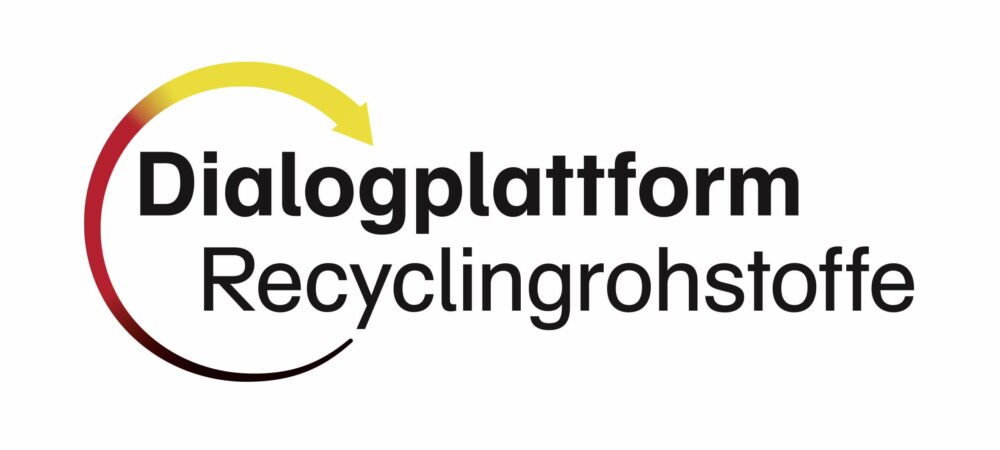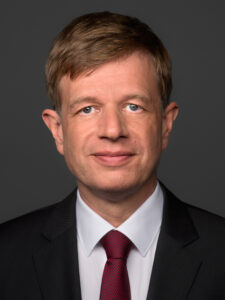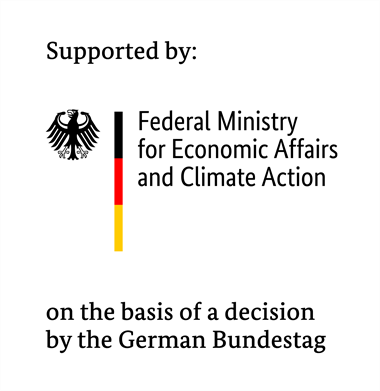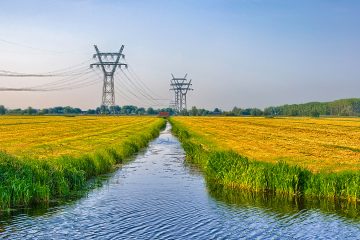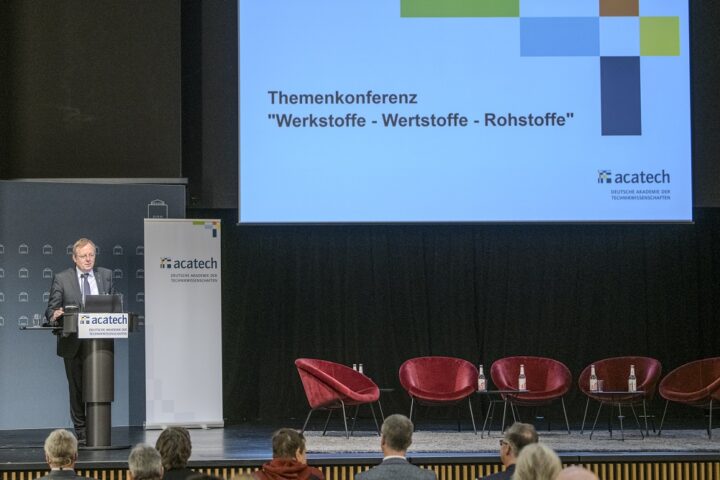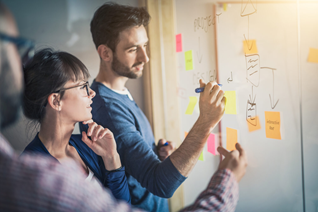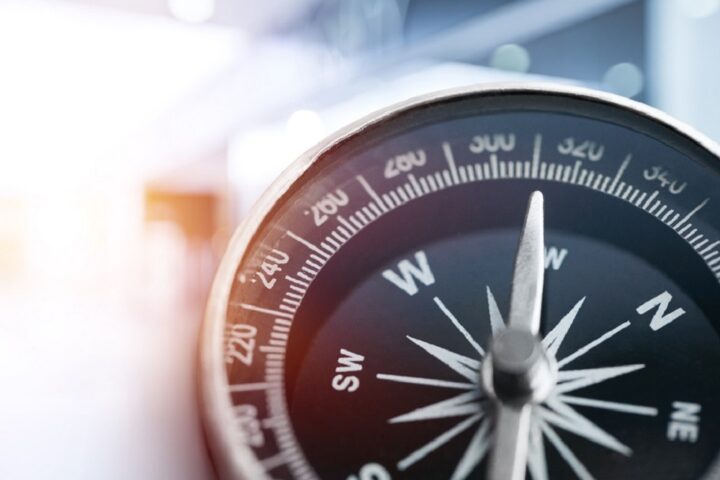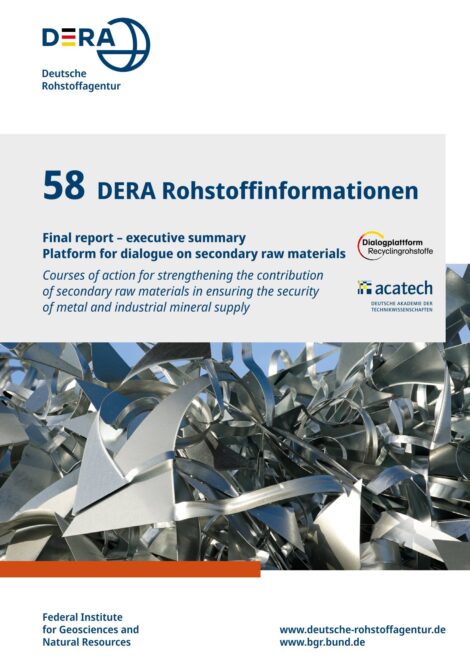Dialogue Platform on Recycling Raw Materials (Dialogplattform Recyclingrohstoffe)

© AdobeStock/Petair
Background and aims
Germany’s supply of raw materials is an essential prerequisite for the international competitiveness of the economy and thus indispensable for securing Germany as an industrial location. In order to ensure this innovative capability in the future, a secure and – with regard to the Federal Climate Change Act and the EU Green Deal – also sustainable supply of raw materials is an essential success factor.
Already today, a not insignificant part of Germany’s raw material requirements is covered by recycling waste and scrap and raw materials recovered from them, yet there is still a need for optimisation. In addition to increasing raw material efficiency, recycling and the use of secondary raw materials will play an even greater role for the secure and sustainable supply of raw materials to German industry in the future – also with a view to the use of future technologies.
The Dialogue Platform on Recycling Raw Materials is intended to create a dialogue between representatives from industry, associations, science and politics. The overarching goal of the dialogue platform is to increase the contribution of secondary raw materials to the raw materials supply of the German economy: recycling is to be strengthened as the second pillar of the (mineral) raw materials supply (excluding plastics, wood, etc.) by developing options for action. The focus of the Dialogue Platform on Recycling Raw Materials is on metals and industrial minerals, which are discussed in the two task forces.
Following an integrated policy approach, the aim is to build on existing knowledge from other initiatives and expert committees and to discuss the focal points of a sustainable industry policy together with climate and environmental policy issues. The options for action are addressed to decision-makers in politics, industry and society.
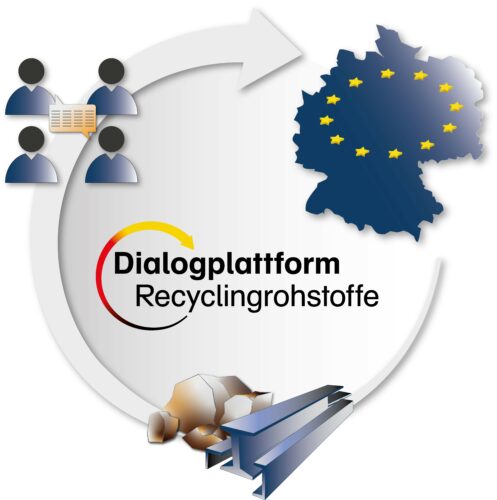
Barriers and weak points in the supply of secondary raw materials are to be selected on the basis of specific material flows and transparent criteria. On this basis, objectives to specific material flows will be defined and possible conflicts of objectives analysed. This will ultimately identify options for action to tap new recycling potentials at the level of individual material flows and the overall system. The results of the dialogue will be handed over to the Federal Ministry for Economic Affairs and Climate Action in the form of a final report summarising the central recommendations for action.
The Federal Ministry for Economic Affairs and Climate Action (BMWK) has commissioned the German Mineral Resource Agency (DERA) at the Federal Institute for Geosciences and Natural Resources (BGR) with the implementation of the Dialogue Platform on Recycling Raw Materials. The office of the platform is managed by DERA and acatech – National Academy of Science and Engineering, as scientific partner.
Task Forces
The implications of recycling for the demand for raw materials in Germany will be worked out in the two task forces on metals and industrial minerals. Existing activities and results from the fields of waste management and circular economy as well as resource efficiency with reference to raw material recycling will be taken up. Against the background of future national and European regulatory developments and initiatives, such as the German Climate Change Act and the European Green Deal, the issues developed are to be considered in particular from an industrial policy perspective. Recycling potentials are to be identified especially for material groups and metals that are essential for the provision or use of future technologies (e.g. critical metals for the production of energy storage systems for the energy and mobility transition).
Task Force Leads
Leads Task Force Metals
- Franziska Erdle
WV Metalle - Prof. Dr. Martin Faulstich
INZIN Institute
Leads Task Force Industrial Minerals
- Prof. Dr. Liselotte Schebek
Technical University Darmstadt - Berthold Heuser
REMEX GmbH
Working Groups
In the Working Groups (WG), which are each assigned to a thematically superordinate Task Force (TF Metals/Industrial Minerals), questions on specific material flows and certain application examples are discussed.
The aim of the WGs is to derive concrete options for action for each material flow. The results will be published in the form of short reports consisting of barrier analyses, potential solution corridors and options for action and will be synthesised in the final report of the Dialogue Platform on Recycling Raw Materials.
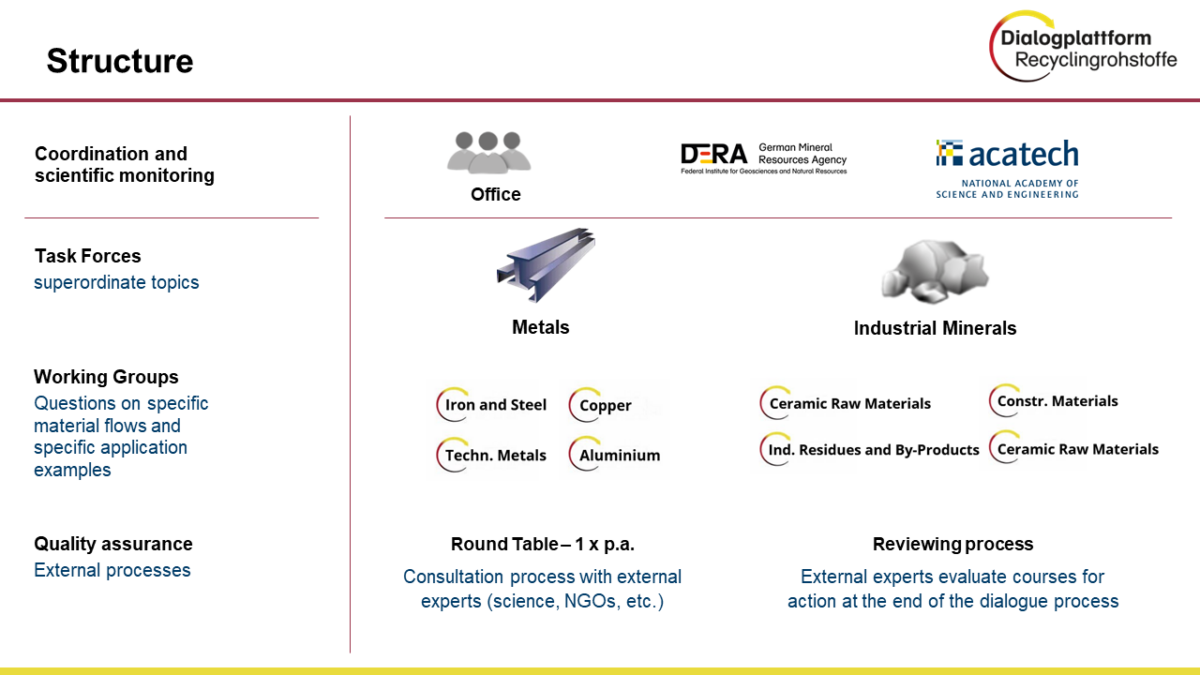
Further information


